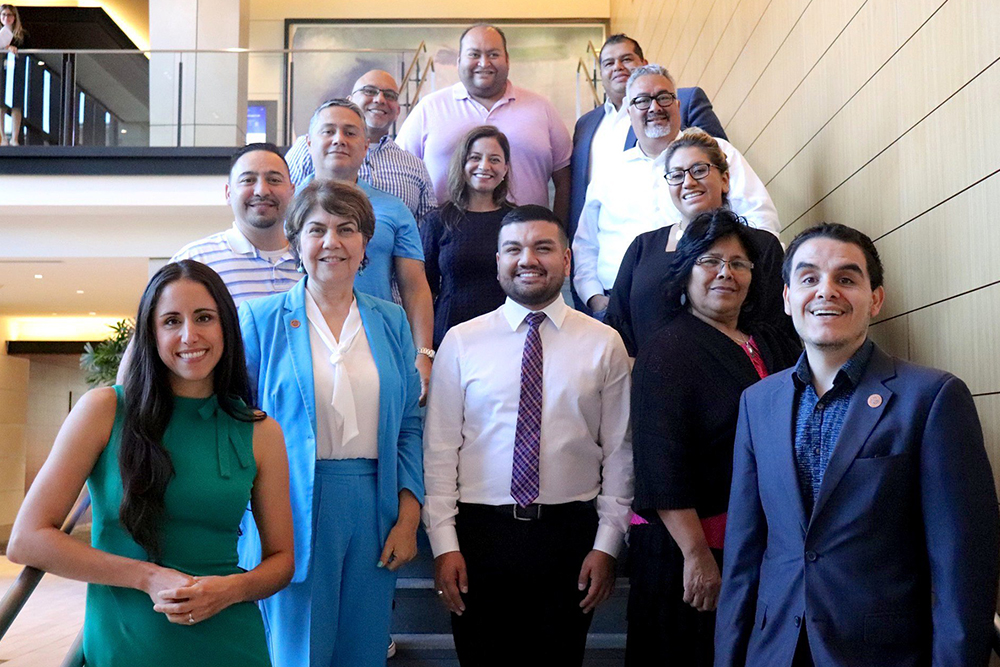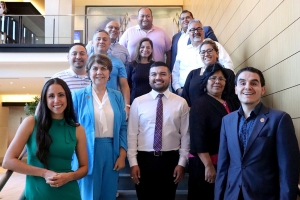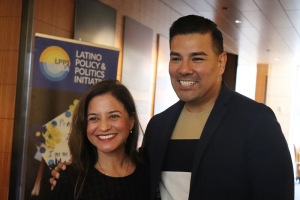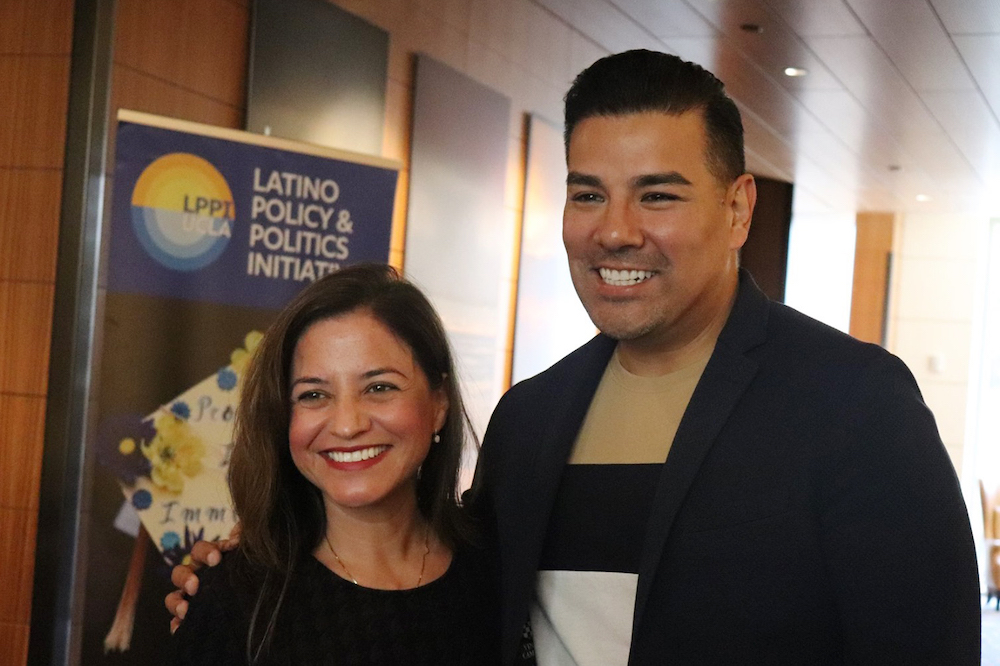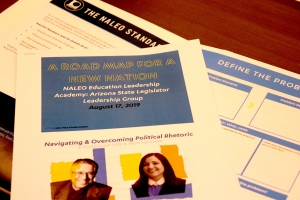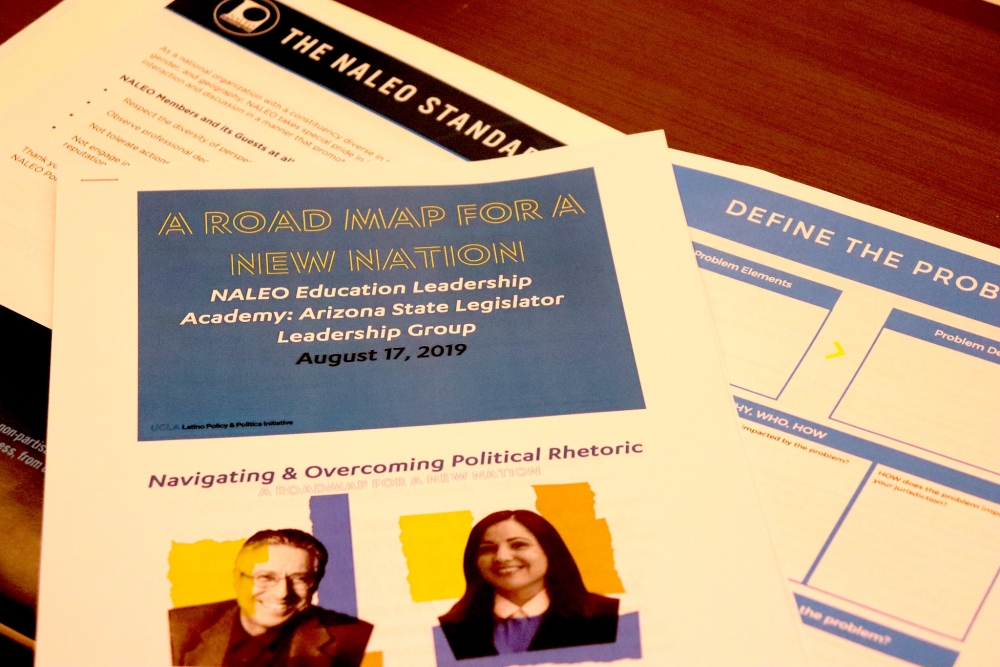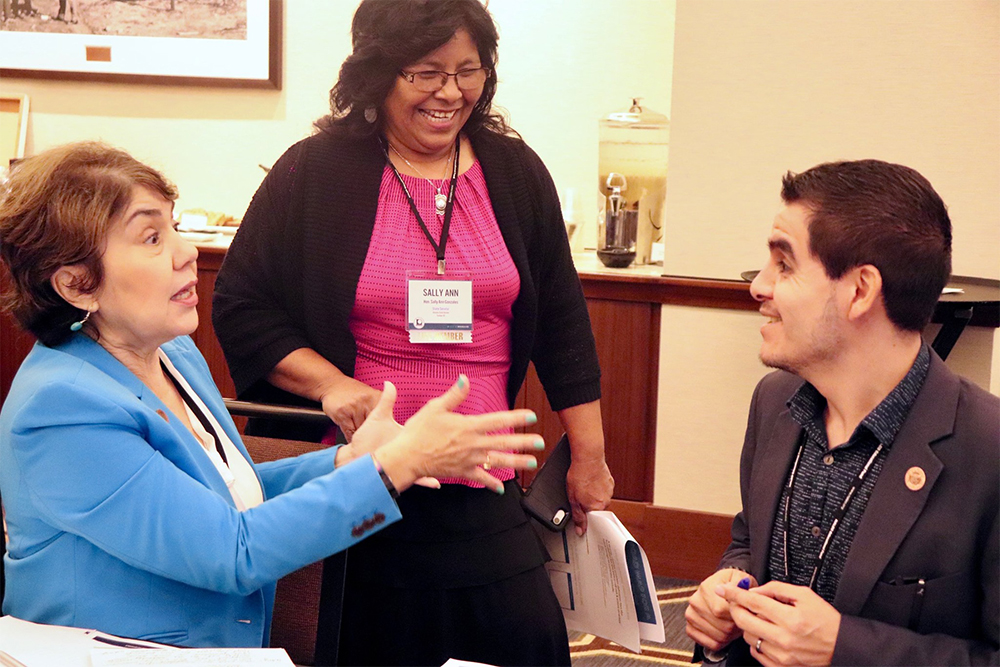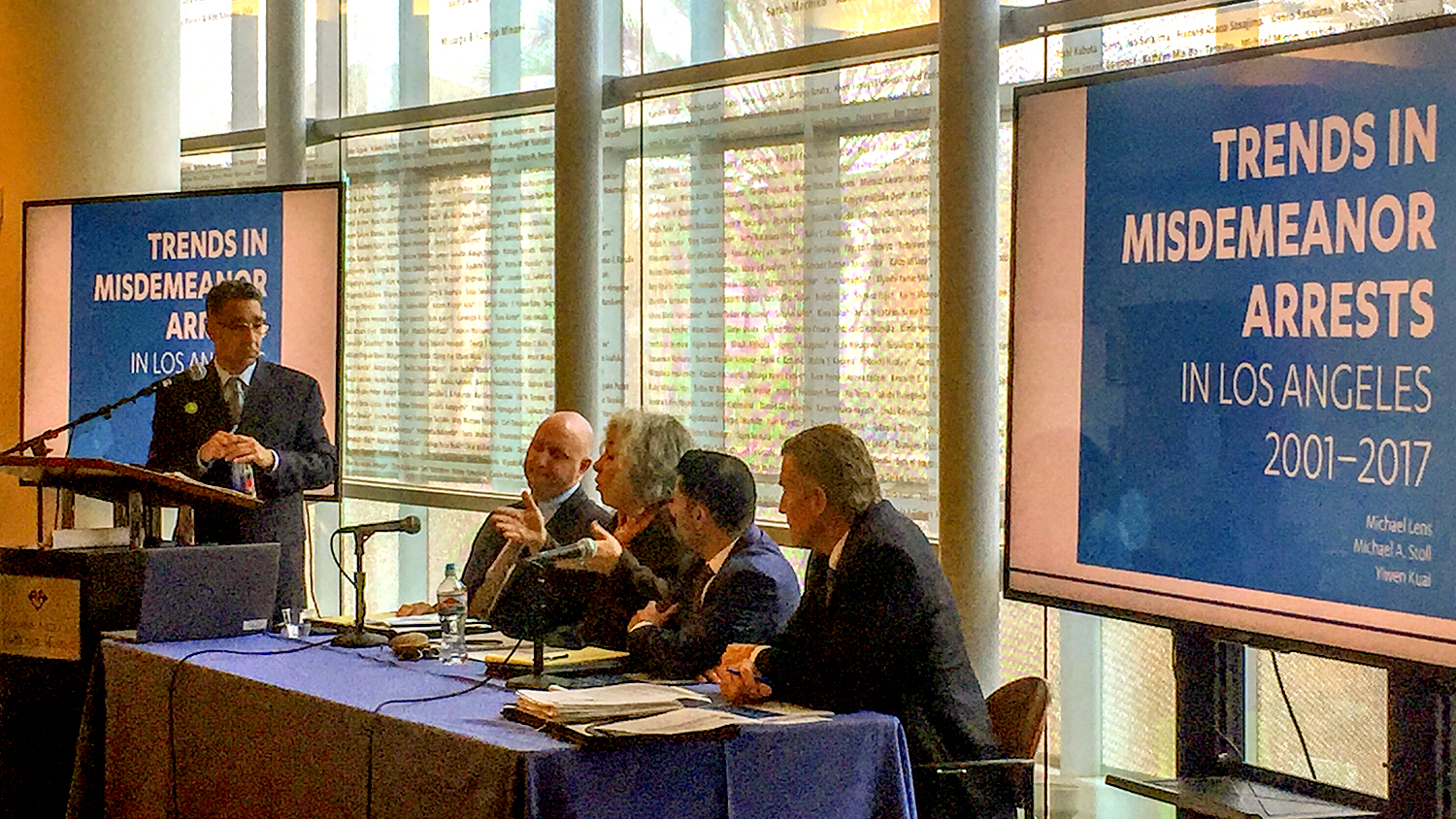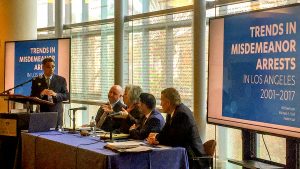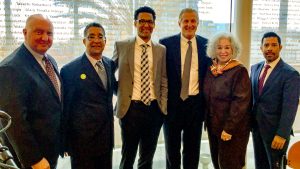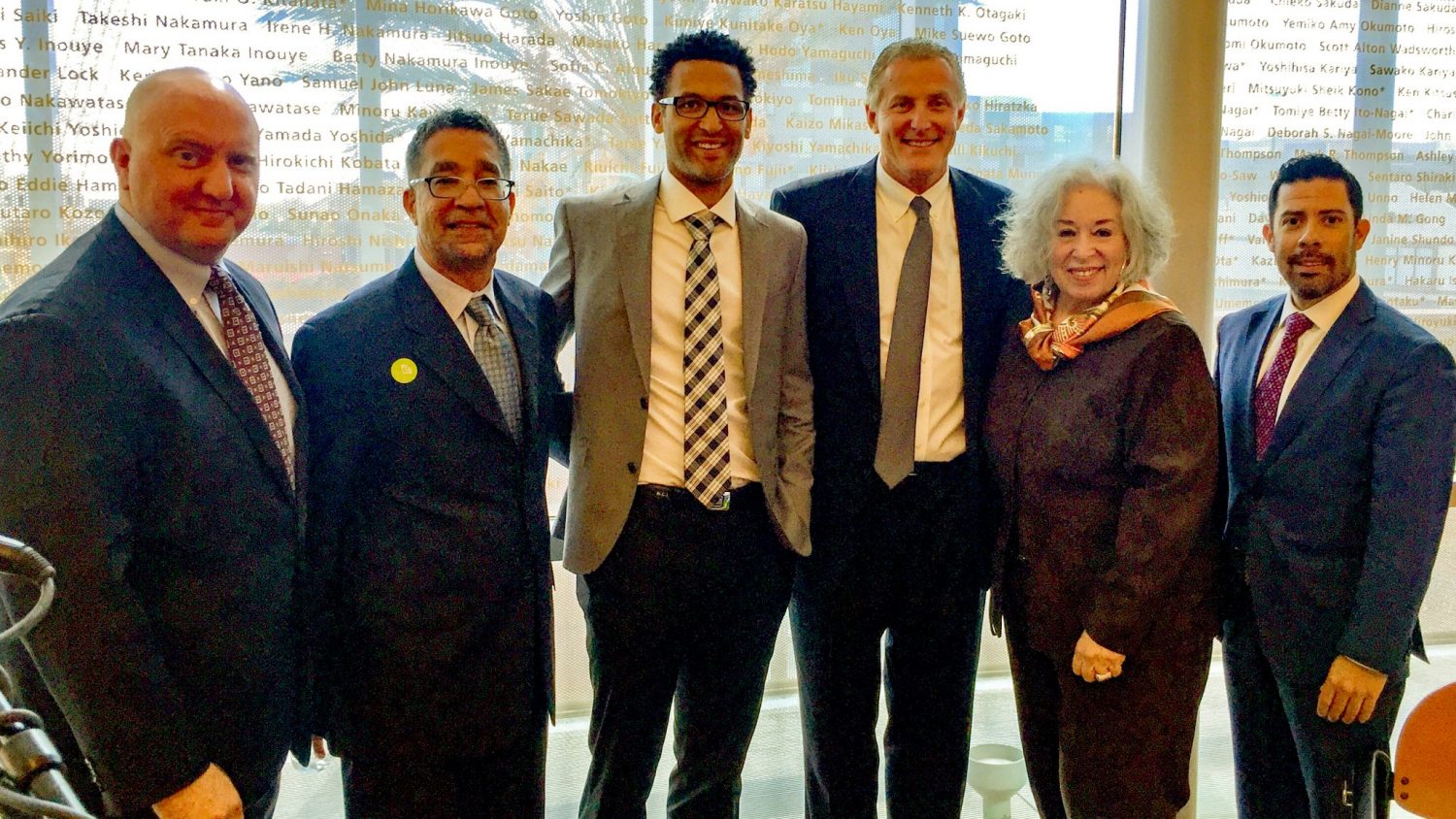Battleground Legislators Meet at UCLA to Develop 2020 Strategies Two days of leadership training energize lawmakers from Arizona, a state that reflects the nation’s changing demographics
By Maria Morales
“You’re the next frontier.”
Those were the words of UCLA Luskin School of Public Affairs Dean Gary Segura as he welcomed Latino legislators from Arizona to a two-day leadership academy at UCLA this summer.
The elected leaders came to deepen their understanding of educational, economic and social issues in Arizona and craft policies to address the needs of the state’s Latinos.
This is a crucial time to look at the opportunities and challenges faced by Arizona’s elected officials, said Erica Bernal, chief operating officer of the National Association of Latino Elected and Appointed Officials Educational Fund and advisory board member of UCLA’s Latino Policy and Politics Initiative.
The conference, which was held Aug. 16-17, was hosted by the two organizations, along with Arizona State University’s Center on Latina/os and American Politics Research.
One of the country’s fastest-growing states, Arizona will be “the marquee battleground state in 2020,” said LPPI faculty director Matt Barreto, a professor of political science and Chicana and Chicano studies at UCLA. The number of eligible Latino voters will be at a record high and the bilingual electorate will be a driving force in the campaign, he said.
For candidates, Barreto said, this creates a challenge: How will they connect and engage with this emerging demographic?
During workshops, conference participants explored demographic changes in the Latino community, the importance of state budget realities, lessons learned from former elected officials, and the essential role of accurate data in crafting policy.
Research- and evidence-based policymaking was a recurring theme throughout the two days. Edward Vargas, professor at the School of Transborder Studies at Arizona State University, shared current polling trends, strategies on how to analyze this data to determine its legitimacy, and best practices on using the numbers to build support among stakeholders.
Vargas also encouraged legislators to think of possible polling questions to engage and communicate with their constituents, keeping in mind the need for culturally relevant questions and true representation of the community.
The conference provided the 13 members of Arizona’s Latino caucus with the opportunity to exchange ideas, build a support network and learn how to incorporate research into their policymaking.
During the gathering’s second day, legislators applied the lessons they learned at a practicum led by Sonja Diaz, executive director of the Latino Policy and Politics Initiative, and Fernando Torres-Gil, director of the UCLA Center for Policy Research on Aging and professor of social welfare and public policy. The skill-building exercise allowed the legislators to incorporate polling data and effective messaging to develop sound legislative policy ideas.
“It was great to see it all unfold,” said Amado Castillo, a third-year undergraduate policy fellow with Latino Politics and Policy Initiative. “The practicum was quite inspirational as it not only gave the legislators the opportunity to use real examples to formulate policy proposals but also allowed us to look and see what type of legislators they are and what they prioritize.”
The Latino Policy and Politics Initiative and its partners will continue the training academy in December in Tempe, Arizona, and will host two roundtables in Phoenix, the state’s capital, in January and February 2020.
View more photos from the leadership academy on Flickr and Facebook.
